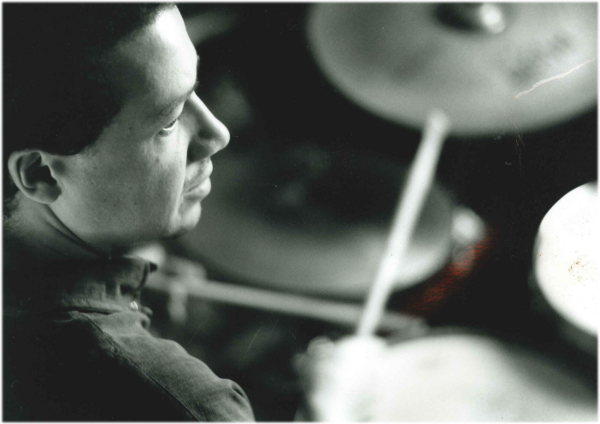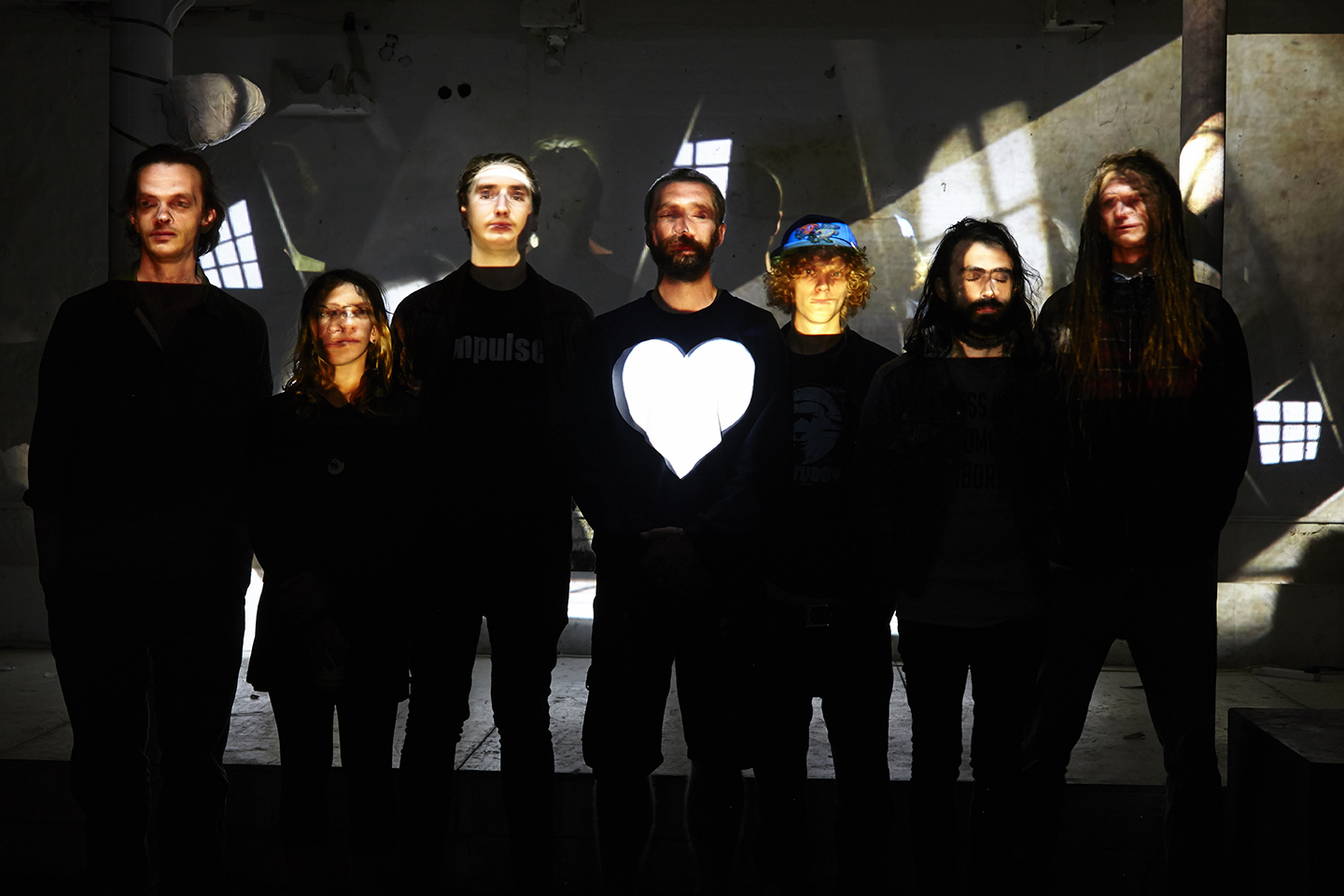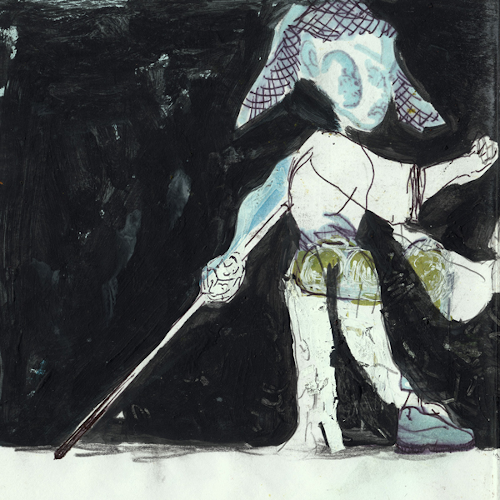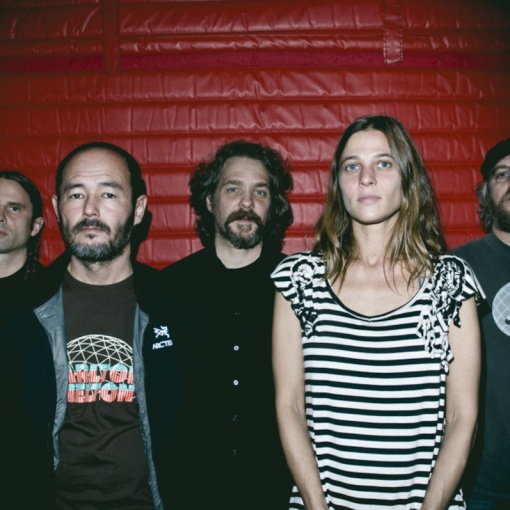 If you’re reading this then you’re part of an experiment.
If you’re reading this then you’re part of an experiment.
Free improvised music – defined in necessarily loose terms by guitarist Derek Bailey as music with “no stylistic or idiomatic commitment… (its characteristics) established only by the sonic-musical identity of the person or persons playing it” – is nothing new, but has the potential to reach a wider audience now than ever before.
Until recently, performances of free music had been all but restricted to a handful of venues in major cities. Even then, newcomers had to take a risk on an approach to music that can come across as alien, cold or intellectualised on record. Seen as a minority concern, free improvisation has been almost entirely absent from broadcast television schedules that could otherwise have delivered a much closer representation of the full live experience than an audio recording (one notable exception being Derek Bailey’s excellent On the Edge). And it is in the live experience that free music excels: world class musicians almost invariably impress when their audience can see their concentration, attentiveness and ingenuity and witness the sensual responsiveness and visceral physicality of their art first hand.
Online services such as YouTube and Vimeo have the potential to change that situation. Video cameras, recording equipment and editing software are now relatively cheap and widely available. As more concerts are filmed and uploaded, increasing numbers of people have the chance to put this music into a context that’s a degree closer the live encounter.
So consider this article an attempt to create that context; a curious music writer hoping to engage the imaginations of people who might not otherwise give free improvisation a second thought; the text equivalent of a DVD commentary track; or as a themed interview with one of the UK’s most accomplished improvisers alongside two video clips that show him at his best.
Mark Sanders has been a professional drummer for almost thirty years. His diversity is unmatched, running the gamut between jazz, free improvisation, pop, avant-rock, modern classical, dance, new complexity, dub and folk. He’s one of the few free improvisers who integrates the learning that he accumulates from these broad activities: most improvising musicians’ approach rarely synthesises or overlaps their sets of experience from other styles. You would be hard pressed to find musicians currently working within free improvisation who he hasn’t worked with. His informative website provides a good starting point for further enquiry, but I would particularly recommend experiencing his solo drumming or work with smaller groups on releases such as Swallow Chase (Treader), Nisus Duets (Emanem) or the superb recent Remote Viewers release entitled [post=”remote-viewers-north/” text=”To The North”].
As an improviser, composer and multi-track recordist, saxophonist John Butcher is one of the most fascinating musicians working today. Gifted with an extraordinary ear for sonic minutiae, a peerless array of techniques for exploiting the instrument’s diversity and lightning fast responsiveness, he is one of the most generous and adaptable players in the field of free improvisation. His exhaustive biography hints at the breadth his work, my own personal favourites including Polwechsel’s Archives of the North and Field (hatOLOGY), the John Butcher Group’s Something to be Said (Weight of Wax), The Geometry of Sentiment (Emanem) and particularly Resonant Spaces (Confront), on which he explores the singular acoustic idiosyncrasies of unusual performance spaces (documented in an excellent Wire magazine article).
The following YouTube clip shows Mark Sanders and John Butcher in performance at St. Giles-in-the-Fields Church on 16th February 2008. The concert (later titled “Tooth Pivot”) is available on audio CD as Treader Duos (Treader). The footage of this performance was made available by user helentonic who hosts many other excellent video clips.
The interview with Mark Sanders was conducted by email, with my own commentary added in italics.
Freq: Did you and Butcher plan any of this session in advance?
Mark Sanders: Improvised music is about listening and reacting. Planning is usually not a part of it, but can be used in larger groups to plan combinations of musicians to play in a set order through a performance (i.e. splitting into solos, duos, trios, etc).
Freq: John Butcher is renowned for his degree of timbral control and ability to adapt to and utilise the acoustics of an environment. How much was this in the forefront of your mind, especially given that you’re playing in a church? For example, you seem to resist playing too many cymbal crashes/washes, and when they are present they’re carefully controlled (I imagine to avoid overwhelming the music in such a large, resonant space).
Mark Sanders: Preparation is very important for me, my choice of percussion and drum kit set up is dependent on where I’m playing and who I’m playing with. For this concert with John in the church, I felt like using my various bells and chimes to be able to play melodically and enjoy the sound of each bell ringing. During the sound check I felt it was important to be prepared to dampen sounds quickly because of the larger reverb and almost echoing nature of the sound in the church. Each tap of the stick – be it on a cymbal, drum or rim – would reverberate longer than in a dryer performance setting.
I always enjoy playing in churches, there’s always a special sound and atmosphere and the possibility of utilising the reverberation of the space.
(Adaptation to playing environments is one of the features of free improvisation that marks it out from most other kinds of music. It’s very rare for musicians to consider how their sounds will be received by the acoustics of a performance space, rarer still for them to adapt their approach to specific locations. One way of thinking about free improvisation is to see it as a perpetual re-examination of how a musician conceptualises their musical instrument – where the instrument begins and ends – with many players including their own bodies and the entire playing environment within the continuum of available resources for a performance. Some players extend that conception further still. So while an acoustic guitar has a hollow resonating body to produce its distinctive sound, for this particular performance you could fairly say that St. Giles-in-the-Fields was as much a part of Butcher and Sanders’ hollow resonating body as their respective saxophone and drum set.)
Freq: I notice that you play one handed for a lot of this session.
Mark Sanders: Playing with one hand was something I was using in order to try to restrict the amount of notes being played at any one moment. It also leaves the other hand free to control the object being struck, i.e. to dampen or bend a note, or just hold a bell, woodblock or small cymbal in place. It gives freedom to react.
(It’s worth noticing the emphasis on restriction here. Most musicians only consider technique and equipment in terms of broadening their range of capabilities, irrespective of whether exploring some of those options causes them to be denied others. Many musicians are too concerned that their contribution will go unnoticed, for which they overcompensate by adding more, resulting in a debilitating lack of space that could reasonably be called one of the defining characteristics of the last twenty years of Western popular music. Deliberate restriction and reduction are important tools to counteract this insecure tendency, and they perversely offer far more options than they discard.)Freq: At the very beginning you have what looks like a cowbell or woodblock ready to modulate the sound of your ride cymbal at precisely the moment that Butcher begins to play. It’s a very effective moment…
Mark Sanders: Happy coincidences are part of improvised music, something to enjoy or ignore (like occasions when all musicians stop playing unexpectedly at the same time). I like using the woodblock on the cymbal; it was an instant but purposeful decision to get inside John’s beautiful playing, a way of ‘sliding into’ his soundworld.
(Improvisers often seek to blur the boundary between themselves and their playing partners. Sanders’ woodblock and ride cymbal response to Butcher’s opening motif indeed has the effect of both entering and expanding the saxophone’s timbral range, creating a combined sound greater than the sum of its parts. “Sliding into” Butcher’s “soundworld” is as precise a metaphor as any for what you’re hearing.)
Freq: A lot of people would approach this as an easy session, given that there aren’t many ways in which a drummer and a saxophonist can cut against each other. The two of you seem to take the opposite approach, filling the performance with detailed sound manipulation and unconventional timbres. Is this always the way you approach music – by challenging yourself creatively – or do you and Butcher tend to bring out this side in each other?
Mark Sanders: John is an amazing musician. He can sound at home and make something special in any musical situation. Playing with him inspires me to play in a textural way, to try to create ‘colours’ and melodies with percussion using space and extended techniques.
(Describing music in visual and kinesthetic terms is common for musicians. “Creating colour,” “sliding into” and playing in a “textural” manner are all descriptors that indicate a conflation of the audio with other senses. Improvised music is a highly sensuous, experiential and instinctive activity, and such synaesthetic language could be seen as indicative of a rich unconscious environment that allows performers to navigate such paradoxically abstract and viscerally physical territory. Note that this use of synaesthesia is closer to its application in Neuro-Linguistic Programming than it is to its more common application as a neurological condition.)
Freq: Your range and fluidity of expression puts me in mind of a more controlled, precise version of Tony Oxley. Who were your main influences as a drummer?
Mark Sanders: Will Evans introduced me to Tony Oxley’s music. I had the pleasure to meet with him a couple of times, he is a great influence on me – as he is for all improvising drummers – as he is such an innovative musician.
Mark Sanders:: Will Evans introduced me to Tony Oxley ‘s music. I had the pleasure to meet with him a couple of times, he is a great influence on me – as he is for all improvising drummers – as he is such an innovative musician.
I enjoy watching other drummers from all musical genres; it’s always interesting to see how all players have something personal they express when at the instrument.While Louis Moholo was living and working in London, he was a great inspiration for me. When he asked me to do duets with him it was one of the highlights of my career so far.
My first drum lessons were with Warrington-based drummer Nobby Clarke. When I started playing jazz I studied with Nigel Morris, the drummer from Isotope. He was an amazing time player, but he preferred to play free.
More recently I’ve been inspired by Tony Levin, for his swing feel.
Freq: You’ve worked with variants of dub reggae in a couple of contexts (with Jah Wobble and Chinese Dub) and with former drum and bass act Spring Heel Jack. Did this bring you into contact with drum programmers, and if so are there any programmers who influenced your approach?
Mark Sanders: I played with Jah Wobble for 12 years, making records and playing live with and without programming. Of course, I always prefer playing without machines as I am freer that way, but I play at home with a drum machine and am a fan of Aphex Twin, Autechre, Four Tet and Squarepusher. I’ve spent a lot of time during practise working on trying to incorporate their drum programming styles into my improvising. I wanted to find a way of playing more rhythmically with groups involving electronics.
(Sanders succeeds in his integration of these influences where most drummers fail. The overwhelming majority who seek to incorporate the language of advanced drum programmers do so entirely two-dimensionally, appropriating only their rhythmic patterns. Sanders, with his keen ear and speed of timbral control, is able to incorporate their three-dimensional aspect: the depth, range of tone and colour that distinguishes the work of the best beat makers. Listening to Aphex Twin’s programming is akin to hearing time and space warp around themselves; reverb suddenly and unexpectedly punctuates a backbeat before disappearing, never to reappear; the sound of one drum slowly morphs into that of another, or inexplicably shifts to another part of the virtual kit; minute changes in velocity and volume subtly imply the presence of a live drummer even when the speed and intricacy of the rhythm indicate its technical impossibility. It’s ironic: most drummers who appropriate these influences sound more detached and mechanistic than the machines they imitate.)
Freq: Ideas of ‘structure’ are often deemed antithetical to improvised music, yet you and Butcher both seem to have an almost paradoxical sense of where the music is at any given time. How do you achieve this? By internalising structural devices from the different forms of music you’ve experienced, or by building yourself escape routes, ways of quickly exiting any patterns you’ve constructed? I’m aware that I could be projecting my own ‘structure narrative’ after the fact.
Mark Sanders: I believe that the seeming appearance of structure in the music is a positive effect that originates from knowing your fellow musicians well and from understanding the nature and language of free improvising music. That allows the music to flow freely.
Freq: Do you ever feel lost when you improvise, and if so how do you find the music again? Are there any bedrock techniques or approaches to which you return?
Mark Sanders: As you become more accomplished at playing improvised music you learn the importance of focused, deep listening and how important it is to have strong ideas, which will help you if/when you have a ‘difficult’ moment. You learn to feel when to play with, alongside or against whatever is happening at that moment. It’s also important to know when NOT to play. If you feel uncomfortable or you don’t know what to do, then do nothing, even if you’re playing solo.(This idea of deliberately not playing, or playing less, is anathema to most musicians. Next time you’re listening to music pay particular attention to when one or more of the instruments stop. Listen to how a musician chooses to enter and exit a composition or improvisation. Chances are, what you’re listening to will be afflicted with that almost inescapable modern Western need for all the musicians to be playing all the time. This results in the loss of virtually all the possible dynamic language that could be employed, and may go some way to explaining the overuse of compression on most recordings. If the music has barely any dynamics to begin with then what difference does it make if you remove them in post production? Doing nothing, restricting yourself, choosing silence: this is a language that is ignored by too many young performers.)
Freq: Some of your approach, such as moments in these clips, “Swallow Chase” and “Nisus Duets,” put me in mind of Iannis Xenakis’ percussion pieces. Does your repertoire include any modern composition for percussion?
Mark Sanders: I’m greatly influenced by modern classical music. I’ve worked extensively with electro-acoustic composer and improviser John Wall, who asks me to play in a ‘classical’ percussion style without the swing feel of jazz. I also work with composer and bass player Simon Fell, who writes for percussion in a very interesting way influenced by jazz (Ellington and Mingus) and the New Complexity composers (Ferneyhough and Lachenmann). Fell purposefully writes very complex music taking musicians to the edge of their technical abilities. I enjoy listening to and playing modern classical music and I hope the future brings more opportunity to be a part of it.
Freq: What would you say forms the foundation of your approach to drumming?
Mark Sanders: I think the bedrock of my playing – without wishing to be pompous – is experience, of life and music. I love improvised music because you are free to be the character you are, without restrictions, free to express yourself through the music. My experience of music is very wide and I’m happy to bring all of those musical styles into my playing. I also believe that as a drummer it helps to have strong underlying rhythmic abilities in order to create a pulse when it comes to more jazz inspired improvisations.
(Far from being pompous, improvisation is almost inarguably the natural manner in which we approach our lives: a sometimes considered, sometimes spontaneous or instinctive response to stimuli that’s born from a synthesis of everything we’ve learned in our lives up to that point. Seen in that light, Sander’s statement that life is the bedrock of his drumming can be taken almost completely literally.
Peculiar, then, that popular music has become so trapped in generic straitjackets that cease to reflect the basic activity of our lives. This is perhaps indicative of an uncomfortably widespread abdication of thought or responsibility for our actions; in the words of Six Degrees of Separation’s Ouisa Kittridge, people often seem like mere “human jukeboxes spitting out anecdotes.” Joseph Campbell’s Hero With A Thousand Faces, along with other similar texts, describes the use of structural conceits, narrative and generic convention as maps with which we make sense of our unpredictable lives. But whenever an interpretation is decided upon as fact we lose valuable possibilities; our maps, models and structures can cause us to make assumptions that remove us from our direct lived experience as much as they assist understanding. The very act of describing our experience separates us from it and causes it to change, which helps to explain why persistently expressing the same things in the same way often feels dishonest. In this context, It is remarkable how similar Derek Bailey’s definition of free improvisation as “playing without memory” is to an approach used by Stewart Brand of the Whole Earth Catalogue and Long Now Foundation, who does his best to avoid describing his experiences using the same terms twice. At its best, improvisation resists these tendencies. It defies rote gesture and restlessly explores alternative routes to expression.
Free improvisation, at its purest, offers a world in which musicians have total freedom of action, and therefore total responsibility for their actions. There are no rules or conventions through which they can abdicate their personal choice. This is arguably what Aleister Crowley meant when he wrote, “Do what thou wilt shall be the whole of the Law.”)
Freq: Ken Hyder talks about the performer’s psychological state being as important, if not more, than the technique and influences they’ve absorbed. Are you aware of your internal state when you play?
Mark Sanders: I don’t know whether your psychological state is more important than anything else but it is an important part of you and so is obviously part of your playing. For example, I played with some great South African musicians in the 1980s. Knowing their feelings about homesickness and thoughts of their families and loved ones living back home with apartheid, they played the most joyous, deep, emotional music I know. It proves that you can use all the negatives and positives of life to make your music express who you are.
Mark Sanders will performing a rare solo performance for Bang the Bore at The Hobbit in Southampton on Sunday 9th January 2011.
John Butcher will exploring the acoustics of the Castle Vault beneath Southampton for Bang the Bore on Monday 28th February 2011.
-Seth Cooke-
(This interview is published simultaneously on the Bang the Bore website)



